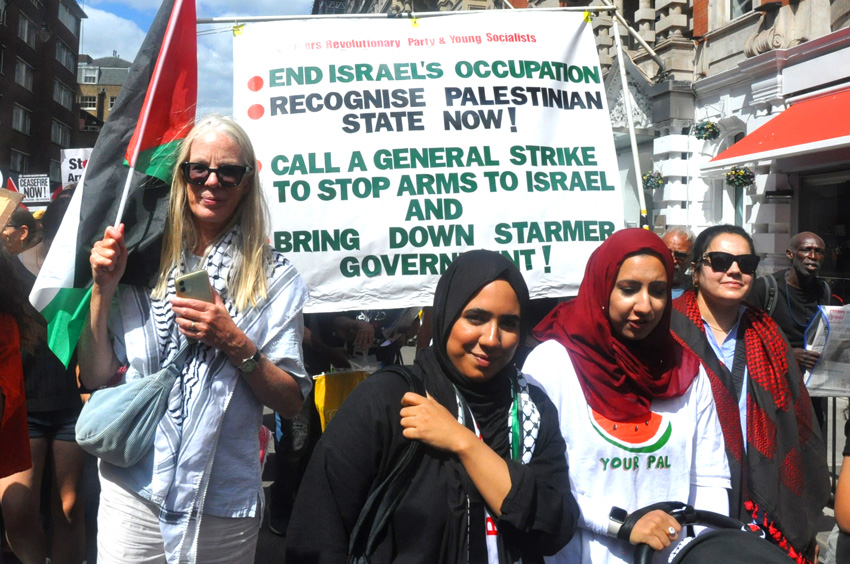THE Hamas leader in Gaza, Dr Khalil al-Hayya, arrived in Egypt yesterday to begin negotiations on the mechanism for a ceasefire, withdrawal of occupation forces and the exchange of prisoners.
On Sunday al-Hayya, appeared in the media for the first time since the assassination attempt targeting him during the Israeli airstrike on Doha on September 9th. His appearance came via a video clip broadcast by Al-Araby TV.
Hamas yesterday denied fabricated media claims that it had agreed to surrender its weapons as part of the ceasefire negotiations.
Senior Hamas official Mahmoud Mardawi said that ‘there is absolutely no truth’ to such claims circulated by certain TV networks and news outlets.
‘These false reports aim to distort the Movement’s position and confuse public opinion,’ Mardawi said, urging media outlets to verify information and rely only on official Hamas channels for accurate updates.
The statement came as negotiations began to end the Israeli genocide in Gaza, which has killed and injured more than 234,000 Palestinians and left over 11,000 missing since October 7th, 2023.
The genocide, carried out with United States support, has wiped out entire neighbourhoods, forced mass displacement, and created famine-like conditions in the besieged enclave.
Hamas Political Bureau member Ezzat al-Resheq welcomed a joint declaration by foreign ministers of seven Arab and Islamic countries, Jordan, the United Arab Emirates, Indonesia, Pakistan, Turkey, Saudi Arabia, Qatar, and Egypt expressing support for the Palestinian position in the negotiations and calling for a lasting ceasefire in Gaza.
Al-Resheq described the statement as ‘significant backing’ for Palestinian efforts to halt the Israeli genocide and begin reconstruction under a national Palestinian administration supported by Arab and Islamic partners.
Mustafa Barghouti, General Secretary of the Palestinian National Initiative, also spoke out backing the negotiations yesterday, saying: ‘The war is still going on. Tomorrow it will be two years since this war started. We were hoping that they would at least reduce their military operations but up to now this hasn’t happened.
‘The success of these negotiations depend on many factors. The first one is the exchange of prisoners. Hamas has already declared their total acceptance of releasing all the Israeli captives together without delay.
‘And they have already agreed to a complete ceasefire and they agreed to hand over all their responsibilities in Gaza to an independent Palestinian body.
‘The three or four major points that could undermine this whole agreement are related to Netanyahu’s behaviour…
‘The four risks are that Netanyahu could go back to war even after receiving the Israeli captives. That’s the biggest worry of the people in Gaza. Second, he is not clearly showing that he is ready to withdraw completely from Gaza. Keeping the Israeli army in Gaza will just create more friction and more possibility of renewal of the war. The third problem is the issue of who is going to run Gaza…
‘And Palestinians want to see an administration that will unify the West Bank and Gaza, not a separate administration of Gaza and definitely not a foreign body that would be ruling Palestinians in Gaza. That is totally unacceptable, because that would mean not only separation of Gaza from the West Bank but undermining the very possibility of a Palestinian independent state, which is exactly what Netanyahu wants.
‘Finally, please understand that this is all going on while the Israeli attacks in the West Bank and the settler terrorist attacks on Palestinians in the West Bank continue, which could undermine any future arrangements.’
